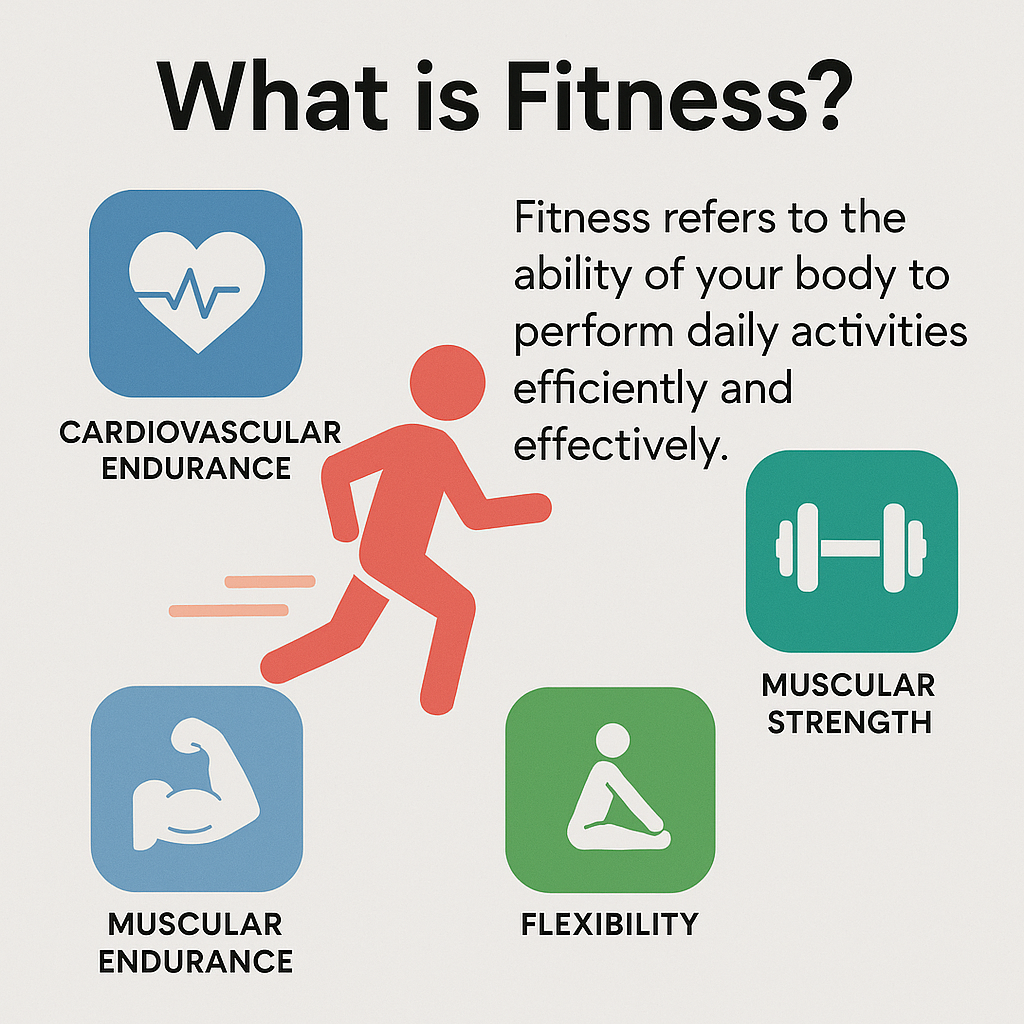Sure! Here's a clear and informative article on "What is Fitness?"
What is Fitness? A Complete Guide to Understanding Wellness
Fitness is a word we hear all the time—in gyms, on social media, and in everyday conversations. But what does it actually mean? Is it about having six-pack abs or running a marathon? While those are aspects of fitness, the concept goes much deeper. Fitness is not just about how you look; it's about how your body functions and how well you can handle daily physical tasks and stress.
Defining Fitness
At its core, fitness refers to the ability of your body to perform daily activities efficiently and effectively without feeling overly tired, and with enough energy left over to handle emergencies or enjoy leisure activities.
Being truly fit means having a well-rounded level of physical, mental, and emotional health.
Components of Physical Fitness
There are five main components that make up physical fitness:
-
Cardiovascular Endurance
The ability of the heart and lungs to supply oxygen to the muscles during prolonged activity (e.g., jogging, swimming, cycling). -
Muscular Strength
The amount of force your muscles can produce (e.g., lifting weights, climbing stairs). -
Muscular Endurance
The ability of your muscles to perform a task repeatedly without fatigue (e.g., holding a plank, doing push-ups). -
Flexibility
The range of motion in your joints (e.g., stretching, yoga). -
Body Composition
The ratio of fat to lean mass in your body. A healthy body composition indicates a balanced amount of fat and muscle.
Why is Fitness Important?
Staying fit has numerous physical and mental benefits:
-
Improves heart health
-
Boosts energy levels
-
Reduces risk of chronic diseases (diabetes, hypertension, etc.)
-
Improves mental health and reduces stress
-
Enhances sleep quality
-
Builds self-confidence and mood
Fitness vs. Health
While fitness and health are related, they are not the same. Health is a broader term that includes physical, mental, and social well-being. Fitness specifically refers to your physical ability to function effectively. You can be healthy without being fit, but being fit usually supports better health.
Types of Fitness Activities
-
Aerobic Exercise: Walking, dancing, running, cycling
-
Strength Training: Weightlifting, resistance bands
-
Flexibility Workouts: Yoga, Pilates, stretching
-
Balance & Coordination: Tai chi, agility drills, balance exercises
Mental and Emotional Fitness
True fitness isn’t just about the body. Mental and emotional fitness—like managing stress, staying positive, and maintaining focus—are equally vital. Activities such as meditation, breathing exercises, and even regular sleep contribute to this side of fitness.
Conclusion
Fitness is a lifelong journey—not a destination. It’s about finding balance, building healthy habits, and improving how you feel, move, and live. Whether you’re lifting weights, going for a walk, or simply staying active during your day, every step counts toward a fitter, healthier you.

